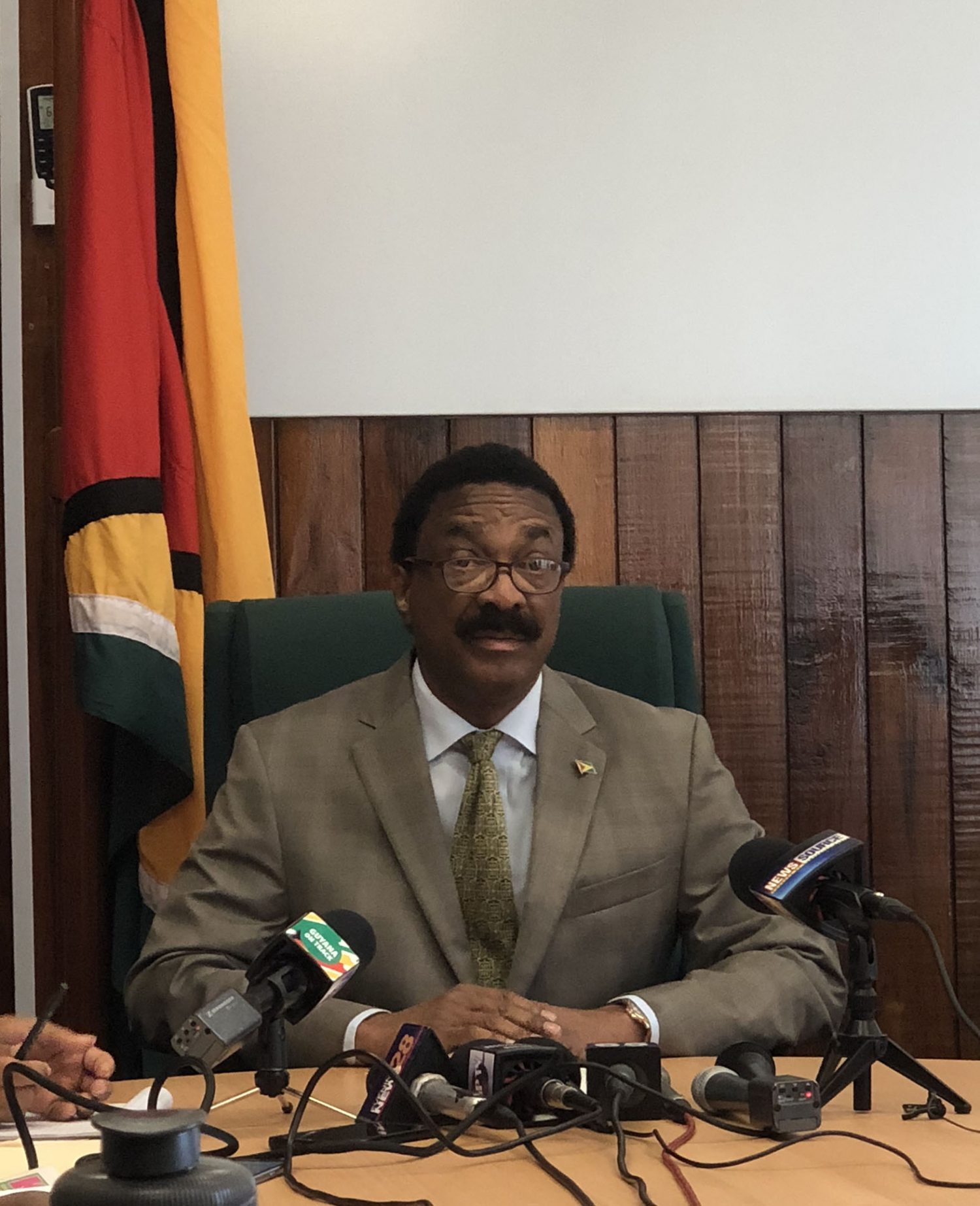The Cybercrime Bill will be taken back to Cabinet for review, according to Attorney General Basil Williams, who has maintained that the controversial sedition clause in the proposed legislation is needed for Guyana to “protect itself”.
“I support the contentions of the Vice-President Khemraj Ramjattan that the state has to protect itself…I am taking it to Cabinet and we will have a look at it but I don’t want to keep repeating that this matter was before the Special Select Committee which I chaired for two years. You had [opposition parliamentarians] Madame [Gail] Teixeira, [Clement] Rohee, [Anil] Nandlall. I mean, I don’t know what ball they dropped,” Williams said at a press conference on Wednesday.
The Attorney General was being questioned on his position on Section 18 (1) of the bill, which states: “A person commits an offence of sedition if the person, whether in or out of Guyana, intentionally publishes, transmits or circulates by use of a computer system, a statement or words, either spoken or written, a text, video, image, sign, visible representation, or other thing, that (a) brings or attempts to bring into hatred or contempt, or excites or attempts to excite disaffection towards the Government established by law in Guyana.”
When questioned about the sedition law being repealed and abolished in other countries, Williams stated that it is still law in India and Canada and that it was only recently repealed in the United Kingdom. This, he said, was only because the UK has other mechanisms in place to protect the state, as opposed to Guyana.
“That charge was there in the United Kingdom from time immemorial, centuries, hundreds of years and they never repealed it. But they repealed it in the 21st century and what that means? It could only mean that that country has reached a level of development in its society that enabled them now to have other mechanisms and other institutions that could take care of persons who threaten the State and incite disaffection,” Williams argued.
He added that Guyana is a “fledgling democracy, not even a century old” and opined that the “society is still young” and needs to be protected.
The inclusion of the sedition clause in the bill has generated significant criticism, which is being seen as an attempt to stifling the rights of individuals to freedom of speech.
The National Toshoas Council, the Working People’s Alliance (WPA) and the Guyana Human Rights Association (GHRA) have all come out publicly against the clause, along with a number of other civil society organisations.
In April, Nandlall had expressed strong objections to certain clauses in the bill.
With regards to Section 18, Nandlall told this newspaper that it represents “a retrograde step [since] an offence like sedition has no place in a modern democratic society.”
Nandall made a Facebook post in April explaining that the sittings of the Select Committee reviewing the bill had conflicted with his court schedule, making him unable to attend “most, if not all” of the sittings. He, therefore, stated that he had not supported the provisions of the bill, as had been claimed.





